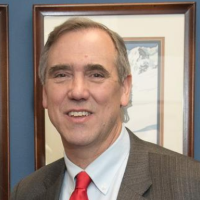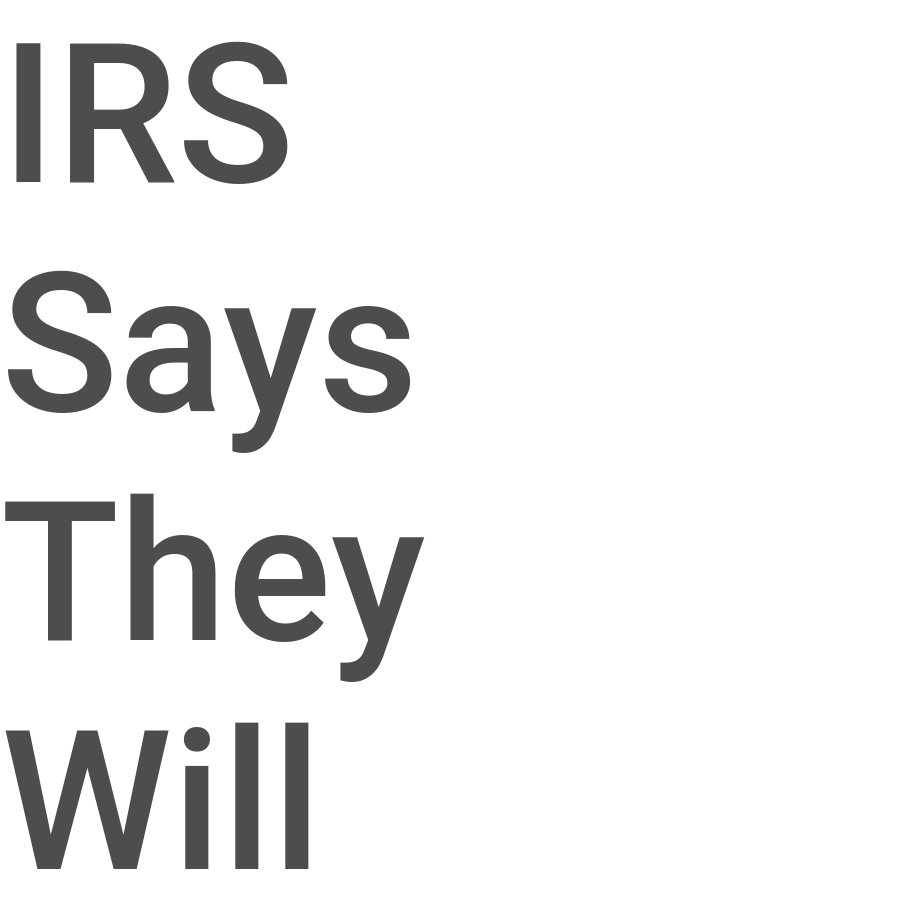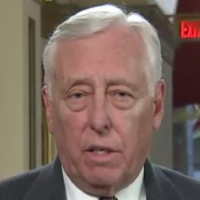The weekslong partial government shutdown has led to around 800,000 federal employees not working or working without pay. It also has led to some false or questionable claims from Democrats about the shutdown’s impact on a host of federal services.
- House Speaker Nancy Pelosi raised “security concerns” due to the shutdown as a reason to suggest postponing the State of the Union address. But 83 percent of Secret Service employees are exempt from the shutdown.
- Some Democrats, including Sen. Jeff Merkley, have falsely claimed that the government shutdown affects Social Security and Medicare recipients and workers.
- House Majority Leader Steny Hoyer said it’s possible that people who file tax returns “won’t get their refund checks.” But the IRS said it will recall its furloughed staff back to work in order to process tax returns and “provide refunds to taxpayers as scheduled.”
- Hoyer also wrongly claimed that “flood insurance is at risk.” More than a week before he said that, the Federal Emergency Management Agency had already announced it would “resume the sale of new insurance policies and the renewal of expiring policies.”
The partial shutdown began on Dec. 22 amid a budget standoff between Democratic congressional leaders and President Donald Trump over funding for his proposed border wall along the U.S. border with Mexico. Congress has yet to pass seven appropriations bills to fund a number of federal departments and agencies, resulting in the staff shortages.
State of the Union Security
House Speaker Nancy Pelosi suggested that Trump delay his State of the Union address, scheduled for Jan. 29, due to “security concerns” during the government shutdown. But the Secret Service — which is in charge of security for the SOTU — is still operating, with 83 percent of its employees exempt from the shutdown.
Pelosi wrote in a Jan. 16 letter to Trump that he might consider waiting to give the annual address to Congress until the government was open or submitting the address in writing. She wrote: “In September 2018, Secretary Nielsen designated State of the Union Addresses as National Special Security Events (NSSEs), recognizing the need for ‘the full resources of the Federal Government to be brought to bear’ to ensure the security of these events.”
She said the Secret Service, which falls under the Department of Homeland Security, was designated “the lead federal agency” responsible for the security for the speech. “However, both the U.S. Secret Service and the Department of Homeland Security have not been funded for 26 days now – with critical departments hamstrung by furloughs,” she said, adding that these “security concerns” were the reason she was suggesting a delay.
DHS is affected by the shutdown. Employees who are not considered essential aren’t working, and those who are working aren’t getting a paycheck. But the vast majority of Secret Service employees are essential workers.
In a Dec. 17, 2018, report titled “Procedures Relating to a Lapse in Appropriations,” DHS said that an estimated 5,978 Secret Service employees, out of a total workforce of 7,222, were “exempt/excepted and estimated to be retained during a lapse in appropriations.”
In a Jan. 16 tweet, DHS Secretary Kirstjen Nielsen said: “The Department of Homeland Security and the US Secret Service are fully prepared to support and secure the State of the Union.”
In fact, most of DHS’ employees are exempt from a government shutdown. The agency said in its December report that 212,699 of the total 245,405 DHS employees were exempt/excepted from a lapse in government funding.
Juliette Kayyem, a security analyst for CNN and an assistant secretary for DHS during the Obama administration, told CNN that there could be “performance” issues due to “personal challenges” associated with law enforcement employees not being paid.
We leave it to readers to judge whether the lack of pay, and slightly smaller workforce, amount to “security concerns.” But the vast majority of Secret Service employees are still on the job.
Pelosi addressed the lack of pay in her Jan. 17 press conference. “I have no doubt that our men and women in the federal workforce have the capability to protect,” she said. “They’re professionals. They are trained for this. They should be paid for this. And that’s why I said to the president: If you don’t open up government, if that doesn’t happen, let’s discuss a mutually agreeable date. ”
Social Security and Medicare
Some Democrats also falsely claimed that the government shutdown was causing problems for Social Security and Medicare recipients and workers.
Sen. Jeff Merkley of Oregon, during a Jan. 7 interview on CNN, claimed seniors were encountering problems filing applications for Medicare and Social Security.
“It’s an incompetent strategy,” he said of the shutdown. “It does damage to all kinds of people who are making applications, whether it’s benefits for Social Security or for Medicare or so on and so forth.”
Rep. Debbie Dingell of Michigan, during a Jan. 11 interview on MSNBC, expressed concern about the Social Security Administration’s ability to handle complaints.
“I care about every one of those government workers who aren’t getting paid, who are scared to death about how they’re going to live and by the way, we should care about the services that aren’t getting performed. From keeping us safe in the skies, to food being inspected, to Social Security complaints, to people having housing issues, to food stamps, the list is endless,” Dingell said.
Social Security and Medicare are not affected by the shutdown, according to both agencies.
In a statement to us, the Centers for Medicare and Medicaid Services said its operations are fully under an appropriations bill signed into law last year.
“On September 28, 2018, the President signed the 2019 Department of Defense and Labor, Health and Human Services, and Education Appropriations Act (PL 115-245), which fully funds the Centers for Medicare & Medicaid Services (CMS) for Fiscal Year 2019. CMS is continuing to accept Medicare enrollments from the Social Security Administration, and provider claims are being processed as normal,” the CMS statement said. “By statute, Social Security processes Medicare Part A and Part B enrollments, and we refer you to the Social Security Administration on that aspect.”
We did contact the Social Security Administration, and a spokeswoman also said the administration is fully funded for the fiscal year by the same legislation that funds CMS.
“Social Security services and offices will remain fully operational, and Social Security benefits will be paid on time,” SSA spokeswoman Nicole Tiggemann said.
We also checked with the AARP, the nation’s largest advocacy group for older Americans. “We’re not aware of any complaints on our end,” Greg Phillips, an AARP spokesman, told us. He too said both Social Security and Medicare are fully funded for the year “per the passing of the Labor-HHS bill.”
Tax Refunds
House Majority Leader Steny Hoyer questioned if the IRS will issue tax refunds.
“There is the possibility that people won’t get their refund checks [from their tax return], which is about $140 billion, the average refund $2,500 that people are relying on and that spur our economy,” Hoyer said in a Jan. 9 press conference.
But in a Jan. 7 statement, the IRS “confirmed that it will process tax returns beginning January 28, 2019 and provide refunds to taxpayers as scheduled.”
“Congress directed the payment of all tax refunds through a permanent, indefinite appropriation (31 U.S.C. 1324), and the IRS has consistently been of the view that it has authority to pay refunds despite a lapse in annual appropriations,” the statement said.
In 2011, under President Barack Obama, the Office of Management and Budget argued that the IRS should not issue refunds during a lapse in funding. However, the IRS’ recent statement said the OMB had “reviewed the relevant law at [the Department of] Treasury’s request and concluded that IRS may pay tax refunds during a lapse.”
To make sure refunds go out as planned, the IRS said it was “recalling a significant portion of its workforce, currently furloughed as part of the government shutdown, to work.”
Still, some aren’t as confident the IRS will be able to disburse refunds without issue, especially if the agency can’t get enough employees to work without pay. Kiplinger advised its readers: “File as early as possible. If the IRS falls behind schedule due to the shutdown, you don’t want your return at the back of a potentially massive backlog.”
Flood Insurance
In his remarks, Hoyer also warned that “flood insurance is at risk.” It’s not.
On Dec. 28, the Federal Emergency Management Agency, which oversees the National Flood Insurance Program, said that it was reversing earlier instructions for private insurance companies not to sell or renew flood insurance policies.
“Today, the Federal Emergency Management Agency (FEMA) announced that it will resume the sale of new insurance policies and the renewal of expiring policies. This rescinds initial guidance issued on December 26, 2018, to industry partners to suspend sales operations as a result of the current lapse in annual appropriations,” a FEMA statement said.
FEMA previously had said any flood insurance claims would be paid during the shutdown.

 FactCheck.org Rating:
FactCheck.org Rating: 
 FactCheck.org Rating:
FactCheck.org Rating: 
 FactCheck.org Rating:
FactCheck.org Rating: 